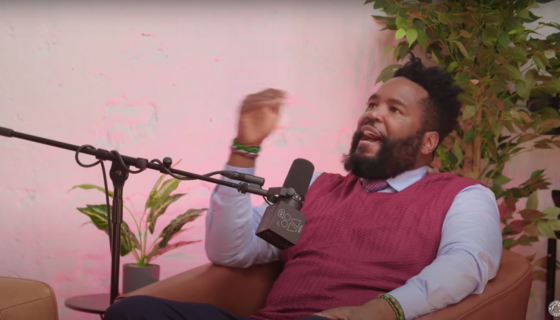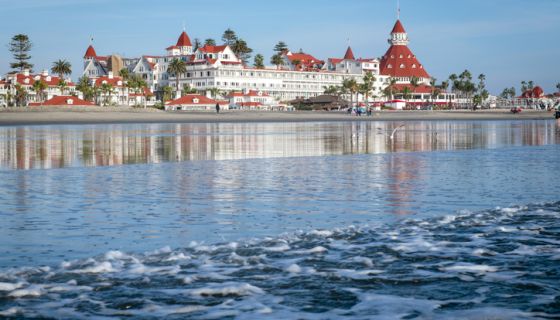
Source: kate_sept2004 / Getty
Equal access to the banking system, at large, is something the Black community has historically been denied. For centuries, legislations were passed that financially set back the Black community. Spanning back as far as Jim Crow laws which legalized segregation across nearly all sectors of society to President Roosevelt’s New Deal, which aimed to help Americans suffering from the Great Depression but hurt Black Americans in many ways.
Making general social progress in anti-racism is not enough to bridge the gap the Black Americans face between themselves and true, unlimited and equal access to banking. That is why the existence of Black-owned banks, as well as those that are designed specifically to uplift the Black community, are so important. With CNBC reporting that Black-owned banks and financial institutions declined by over 50 percent between 2001 and 2018, organizations like these need consumer support. Here’s a look at banks in America that are working to give the Black community an empowering banking experience.
Brooklyn Cooperative Federal Credit Union
Brooklyn Cooperative Federal Credit Union has been operating in the predominantly minority neighborhoods of Bushwick and Bedford-Stuyvesant, Brooklyn for over 20 years. In their mission statement, they write that a “Commitment to communities neglected by mainstream banking institutions” is part of what sets them apart, along with flexible and affordable account services and comprehensive loan programs. Some of the reasons members love them include their low minimum balance requirements, savings accounts with zero fees and checking accounts with minuscule fees. The union, known by locals as the Brooklyn Coop, is working to help its underserved community – 95 percent of which are minorities – to build generational wealth. They currently hold over $25 million in assets.
OneUnited Bank
OneUnited Bank has the distinction of being the first Black-owned online bank and is the largest Black-owned bank in America. As of 2021, the bank held $658 million in assets and has over 90,000 branches nationwide. The founder of the bank had the idea to have Black community banks across the country pool their resources to become a larger force, and so OneUnited Bank was born. It serves low- and middle-income communities and has historically advocated for the financial empowerment of the Black community as an impetus for economic and social improvements. They’re responsible for the #BlackBank challenge, launched in 2016, which challenged Americans to leave larger institutions for Black-owned banks and credit unions.
Citizens Trust Bank
Operating since 1921, the Citizens Trust Bank was created by five businessmen, known as “The Fervent Five” who shared a dream of starting a bank that would primarily serve the Black community and offer this community the chance at financial stability, homeownership and other experiences previously reserved for white individuals. Citizens Trust Bank was the first Black-owned bank to become a member of the Federal Deposit Insurance Corporation and later became the first Black-owned bank to be a member of the Federal Reserve System. The bank went through several mergers over the years and has grown exponentially today. Today it holds $429 million in assets and was instrumental in saving small businesses during the pandemic through its participation in the PPP application process. They have branches in 15 cities across America.
Liberty Bank
Liberty Bank has been operating since 1972 and was the first multi-racial bank in New Orleans, with Black and white shareholders. They grew rapidly, and were listed in the Nation’s 100 Top Black Businesses write up in Black Enterprise magazine. The bank is known for its involvement in community initiatives and programs. Currently, they are participating in the Detroit Home Restoration and Acquisition Program, a non-traditional mortgage offered to individuals buying and renovating in select neighborhoods in Detroit that were hit the hardest by the downturn of the housing markets. Liberty Bank holds approximately $965 million in assets and has branches in nine states.
Mechanics & Farmers Bank
The Mechanics & Farmers Bank is over 100-years-old and the second oldest minority-owned Bank in the United States. It was founded by nine businessmen who recognized the limited options minority groups had when it came to acquiring funds as well as safely depositing funds and earning interest. “Helping individuals, businesses and community institutions grow and develop are the philosophical tenets that inform our decisions…” says their mission statement. The bank became the first lending institution in North Carolina to be certified by the Federal Housing Administration in 1935 and since then has grown its assets to $343 million. To this day they maintain an emphasis on serving underserved populations.
BlueHub Capital
Originally named Boston Community Capital, BlueHub Capital is no ordinary bank. According to their website, they are a “Nonprofit community development financial institution.” The institution was formed in response to racist lending practices that were keeping the poor perpetually poor, particularly in minority neighborhoods, for decades. One such example was redlining, which describes a bank refusing a loan to someone because they’re deemed a financial risk due to the neighborhood in which they live. It first served low-income neighborhoods of Boston, and now has locations across the country. Their main focus is on offering affordable housing and mortgages to low-income borrowers. They also work to deploy funds to projects that focus on youth development programs, community-based healthcare centers, clean energy enhancements and similar efforts with an eye on a better future for underserved communities.
City First Bank
City First Bank (previously Broadway Federal Bank) is part of a family of organizations working on economic justice at every level. In the group is also City First Enterprises, City First Homes (helps low-income homebuyers get mortgages) and City First Foundation (directs investment funds to community-based projects). They focus on affordable housing, eco-friendly and community-based initiatives. Their vision on their website states, “We believe the intentional, disciplined, and targeted provision of capital focused on positive social and economic impact creates, supports and champions economic equity for underserved people and communities.” They hold $214 million in assets and have several locations throughout California, along with their headquarters in Washington, D.C.












